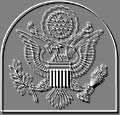 |
Presidential Advisory Commission on Holocaust Assets in the US |
|
Press ReleaseFor Immediate Release Contact: Stu Loeser mailto:sloeser@pcha.gov October 14, 1999 Presidential Commission on Holocaust Assets Reports Troubling Findings on US Handling of Nazi-Looted ArtWashington, DC - The Presidential Advisory Commission on Holocaust Assets in the United States today released an update on its research into the "Hungarian Gold Train" -- an example of an egregious failure of the United States to follow its own policy regarding restitution of Holocaust victims property after World War II. “This is one of many research presentations that will comprise our report to the President and the American people,” stated Commission Chair Edgar M. Bronfman. “Many of our findings may praise American activities, and some may not. Our highest priorities are discovering the truth and achieving justice.” A summary of the Commission’s findings is below and a copy of the full text of the briefing to Commissioners follows (View or Download Briefing). For additional information including the full text of the Commission’s findings (available after 5:00 PM) please visit www.pcha.gov. Findings in Brief BACKGROUND: On May 16, 1945, infantry forces of the U.S. army seized a train in Werfen, Austria, sixty miles south of Salzburg. This train was laden with paintings and other valuables, mostly taken from Hungarian Jews by Adolf Eichmann’s Nazi forces and Hungarian collaborators. PROBLEM: U.S. determination that assets were not identifiable as to ownership or national origin. Once this decision was made, the restitution of Gold Train assets to Hungary or to the Hungarian Jewish community was no longer an option. Representatives of the Hungarian Jewish community vigorously protested this decision and insisted that that - with access to the contents of the Gold Train - they could identify their property. The U.S. government was not responsive to the Hungarian Jewish representatives; pleas to halt a New York auction of some Gold Train assets were not heeded. PROBLEM: U.S. forces’ appropriation of assets. This took place at the highest level and the subsequent disposition of this property is not known. Less valuable objects were sold through the Army Exchange stores, and property in the Military Government warehouse was subject to theft. It is important to stress that the U.S. forces in Europe generally behaved in a commendable way. PROBLEM: U.S. decision to transfer to the Austrian government more than 1100 paintings taken out of Hungary. While the U.S. forces generally did an outstanding and scrupulous job carrying out the restitution policy of returning artworks to the country of origin, the U.S. did not follow that policy in this case. The current disposition of these paintings is not known at this time. Commission staff has inquired to both the Hungarian and Austrian governments and informed them of our findings. Hungarian contacts indicate they have not yet found evidence that they received these paintings; they first received inventories listing the paintings from the Commission. The Austrian authorities report that their initial research indicates that “a portion of this property had been restituted” without saying to whom or when. |
||
| If you have any questions
regarding this site please contact Webmaster Site work by Eyelatch/Iwaniec Associates |